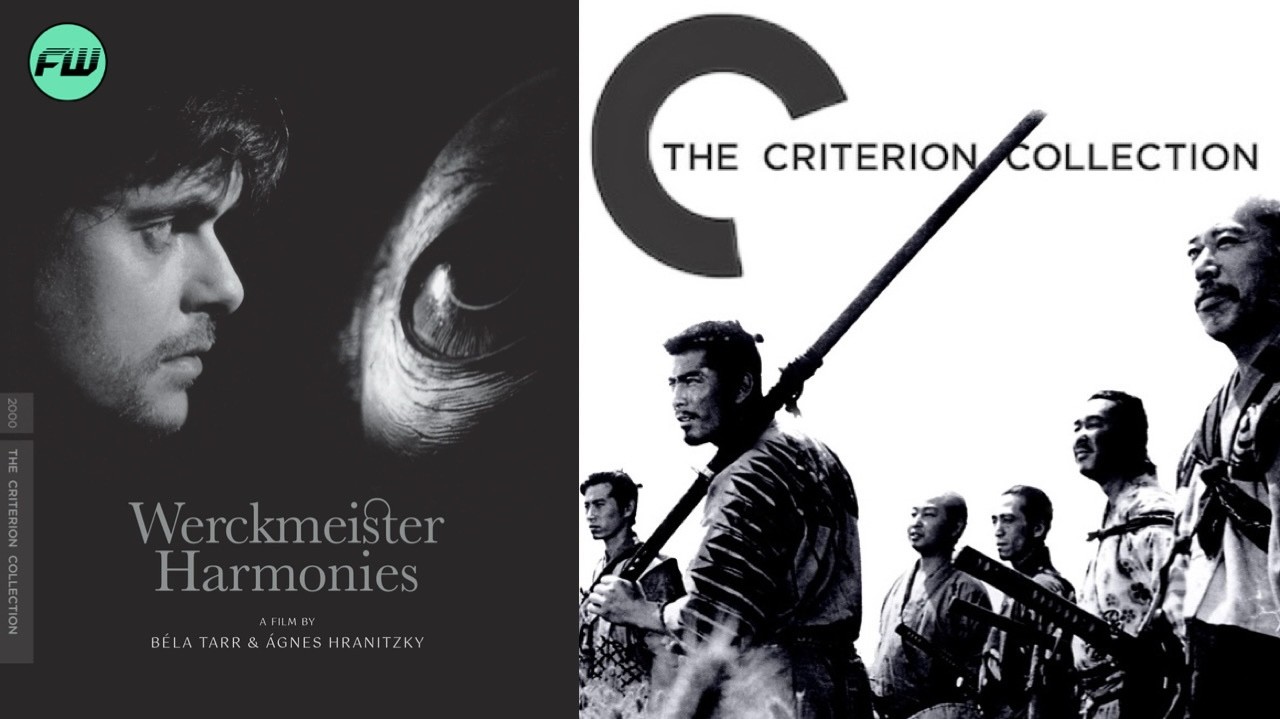Werckmeister Harmonies released in the Criterion Collection on April 16th.
Béla Tarr is an auteur with a reputation befitting the Criterion Collection. The Hungarian filmmaker utilizes beautiful visuals — typically in black and white — and unsettling realism to explore the unpleasant truths of existence. It’s fitting that his first feature to receive a proper physical release in the Criterion Collection is 2000’s whimsical mystery The Werckmeister Harmonies. Even better, we get two for the price of one with the inclusion of his debut feature, Family Nest, included in the special features.
Werckmeister Harmonies Plot
A peculiar circus, consisting of a massive and mysterious whale, sets up shop in the center of a small town. As curious spectators flock to the unconventional attraction, a primal violence bubbles to the surface of the sleepy village.
The Critique

Also Read: Criterion Collection: The Runner Review
Werchmeister Harmonies is a film that — like many artistic films — requires patience and unwavering focus. The story unfolds slowly, opening with a discussion and demonstration of a solar eclipse. The central character — János Valuska — utilizes unwitting bar patrons to physically act out the Earth’s orbit around the sun, and the moon’s orbit around the Earth. The scene plays out for ten-minutes in the cozy social area of a modest pub without a single cut or edit. It’s a beautifully composed, yet simplistic opening that foreshadows the impending darkness the town will soon face.
The perpetually moving camera remains consistent throughout the film, and each scene is presented with an unbroken gaze. It explores illogicality through a fog of vagueness by showing us something incredibly strange, and never fully explaining it or exploring its origin. The violence is visceral, but never graphic. Béla Tarr and co-director Ágnes Hranitzky choose to insinuate more than they directly reveal, keeping the mystique constant throughout.
László Krasznahorkai — who’d written the novel which the film was based on — adapted the screenplay. That novel’s themes of impending doom and apocalyptic dread pair perfectly with the auteur’s philosophical style. The two have collaborated frequently, including with the filmmaker’s two prior projects, Damnation and Sátántangó. Perhaps pulling just as much weight as the cinematography is the film’s musical score. The soft and poignant melody accentuates the beauty of every seen, especially the first moment János lays eyes on the whale.
The Special Features
Béla Tarr supervised the 4K digital restoration, and it looks beautiful. Included on the blu-ray disc is Family Nest, the feature debut from Béla Tarr. Critic Scott Foundas conducts a new interview with the filmmaker.
Also included is the film’s original trailer, an essay by critic Dennis Lim and newly translated English subtitles.
Would I Recommend This Purchase: Yes. The film is beautiful, both visually and in its story telling.
Is It Worth a Blind Buy: Most likely not. The film is has an undeniably specific style and it’s slow pacing may be a difficult watch for some viewers.
9/10
Follow us for more entertainment coverage on Facebook, Twitter, Instagram, and YouTube.


